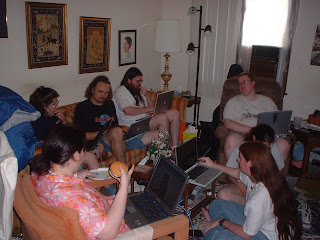The whole world recognizes the beautiful as the beautiful, yet this is only the ugly; the whole world recognizes the good as the good, yet this is only the bad.
Thus Something and Nothing produce each other;
The difficult and the easy complement each other;
The long and the short offset each other;
The high and the low incline towards each other;
Note and sound harmonize with each other;
Before and after follow each other.
Therefore the sage keeps to the deed that consists in taking no action and practices the teaching that uses no words.
The myriad creatures rise from it yet it claims no authority;
It gives them life yet claims no possession;
It benefits them yet exacts no gratitude;
It accomplishes its task yet lays claim to no merit.
It is because it lays claim to no merit
That its merit never deserts it.
If desire is the orthodox energy—our grid and outlets—beauty is the orthodox appliance. We plug beauty into desire and feel a strange utility. We purchase beauty in sleek packaging, according to the prerogatives of marketing and merchandising, from and for desire. If one lives in a forest of iPods and food processors, a new gadget may be beautiful; but if one lives in a forest of sequoias and brooks, that same gadget may be ugly.
The Tao doesn’t care much for interpretations that grow from the soil of only one forest. The Tao’s soil is the world—its myriad forests, its diverse ecologies. What’s beautiful in one environment is ugly in another; what thrives in one system dies in another. The one given to the Tao sees that all things lead to their opposites, and all opposites are bound to what they aren’t. How then does such a one affirm anything? It’s quite simple. Such a one affirms any thing because it affirms everything.
But whereas most people affirm things and draw the strength of those affirmations from the things they negate—thus depending as much if not more on their hidden negations than their overt affirmations—the one given to the Tao draws her affirmation from the fact of the thing’s existence in the context of all other things. The former affirmation feels total to the one affirming, for the one affirming stakes his existence and subsequent claims—the very justification of his being—on the rightness of his affirmations over his negations. But the latter affirmation is never total; the only totality is the sum total of all affirmations—neither an affirmation nor a negation, neither both, but something else. This is the Tao and the one who lives in such diffused and contradictory ambiguity one given to the Tao.
Opposites do not simply produce each other, they are each other. They are not each other identically or analogously, but contain each other within themselves as lovers contain each other. The separation of values—beautiful from ugly, good from evil—is a mental exercise designed to make the intellectual gymnast (though he is often fat) increase his comfort in the face of life’s overwhelming discomforts. And—let’s face it—the miracle is that the exercise often works. Who would not then perform it in the armchair of his mind? The one given to the Tao. Why? Because neither comfort nor miracles, beauty nor ugliness, good nor evil, particularly depress or enchant him. He sees them as children on opposing seats of a seesaw, in endless play and vacillation.
The sage is not the sage because she wishes to be a sage … or, more likely, wishes to be perceived as a sage. The sage is a sage because she’s a sage. She was born on the non-action side of the seesaw, looking across the fulcrum of nothingness to the bulging seat of action. How does one who is born from action and gives birth to it—but is non-action herself—cause her end of the seesaw to rise then? Ah! That is the mystery.
The sage describes the great stage of action because that is what she sees before her. But does she see yet refrain from describing the backstage of non-action because that is what she is? Ah! That is a question.
The sage does not become better than others because of her sagacity; she does not become better than others at all; she simply becomes a sage because she is not inclined to act—a lack of inclination not from indolence or fear, but from vision and inclination. This inclination hardly precludes action but places it in spaces of sensation that affirm and in this affirming multiply action into all things. Others, then, from envy or lack of understanding, equate sagacity and superiority, but if the sage is truly a sage, she denies this equation. Indeed, she tends to deny or at least sidestep all equations.






